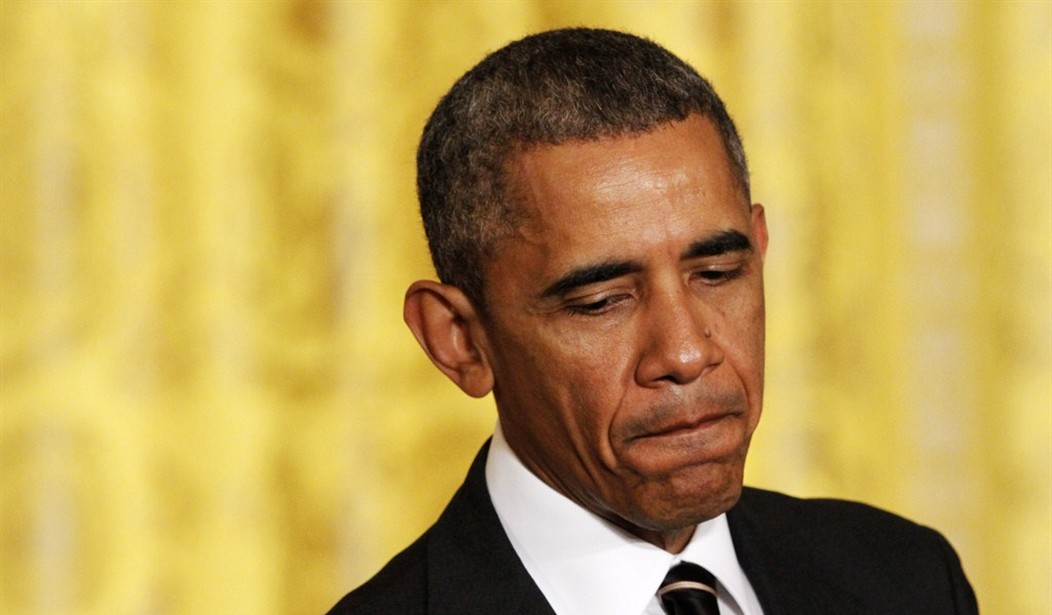Yes, it's time once again for yet another post illustrating a core criticism of Obamacare, and various forms of government-run or -micromanaged healthcare more generally; namely, the fact that "coverage" or "insurance" does not equal
Advertisement
WHEN Karen Pineman of Manhattan received notice that her longtime health insurance policy didn’t comply with the Affordable Care Act’s requirements, she gamely set about shopping for a new policy through the public marketplace. After all, she’d supported President Obama and the act as a matter of principle. Ms. Pineman, who is self-employed, accepted that she’d have to pay higher premiums for a plan with a narrower provider network and no out-of-network coverage. She accepted that she’d have to pay out of pocket to see her primary care physician, who didn’t participate. She even accepted having co-pays of nearly $1,800 to have a cast put on her ankle in an emergency room after she broke it while playing tennis. But her frustration bubbled over when she tried to arrange a follow-up visit with an orthopedist in her Empire Blue Cross/Blue Shield network: The nearest doctor available who treated ankle problems was in Stamford, Conn. When she called to protest, her insurer said that Stamford was 14 miles from her home and 15 was considered a reasonable travel distance. “It was ridiculous — didn’t they notice it was in another state?” said Ms. Pineman, 46, who was on crutches. She instead paid $350 to see a nearby orthopedist and bought a boot on Amazon as he suggested. She has since forked over hundreds of dollars more for a physical therapist that insurance didn’t cover, even though that provider was in-network.
Recommended
Advertisement
Here is a staunch Obama supporter who's so ideologically loyal that she refused to become upset when her existing healthcare plan was deemed non-compliant and canceled under Obamacare. She made her peace with paying higher premiums and higher out-of-pocket expenses. She was even willing to live with her pared-down network of doctors and healthcare facilities. Being personally betrayed by multiple, major presidential promises wasn't enough to shake her commitment to the president or his signature law. But the long drives to see an in-network provider and the hundreds of extra out-of-pocket dollars flying out of her bank account finally led to "frustration bubbl[ing] over." She's now a poster child of discontentment with Obamacare, featured in the nation's most prominent left-leaning newspaper. The story goes on:
The Affordable Care Act has ushered in an era of complex new health insurance products featuring legions of out-of-pocket coinsurance fees, high deductibles and narrow provider networks. Though commercial insurers had already begun to shift toward such policies, the health care law gave them added legitimacy and has vastly accelerated the trend, experts say...For some, like Ms. Pineman, narrow networks can necessitate footing bills privately. For others, the constant changes in policy guidelines — annual shifts in what’s covered and what’s not, monthly shifts in which doctors are in and out of network — can produce surprise bills for services they assumed would be covered. For still others, the new fees are so confusing and unsupportable that they just avoid seeing doctors...by endorsing and expanding the complex new policies promoted by the health care industry, the law may in some ways be undermining its signature promise: health care that is accessible and affordable for all.
Advertisement
Higher costs, "constant changes," surprise bills, outright confusion, and the avoidance of seeking care. Devatasting stuff from the Times, which quotes a healthcare industry professional who rejects the happy talk emanating from the administration and its supporters (by the way, I dealt with and debunked virtually every major point attempted in that Newsweek piece):
“I’m always curious when I read this ‘good news’ that health costs are moderating, because my health care costs go up significantly each year, and I think that’s a common experience,” said Mark Rukavina, president of Community Health Advisors in Massachusetts. While much of the focus in the past has been on keeping premiums manageable, “premiums now tell only a part of the story,” Mr. Rukavina said, adding: “A big part of the way they’ve kept premiums down is to shift costs to patients in the form of co-pays and deductibles and other types of out-of-pocket expenses. And that can leave patients very vulnerable.”
True. And the premiums are still increasing -- by double-digit percentages for some consumers -- across the board, and are likely to push higher over the coming years. Of course, we were told Obamacare would significantly slash rates. And the "coverage" those rates are paying for doesn't kick in until deductibles are exhausted --
Advertisement
Ed Morrissey breaks down the folly of the president's answer in detail, including Obama's bizarre assertion that Staples is somehow blocking their employees from getting Obamacare. The opposite is true: By not blowing expenses through the roof by providing healthcare to a large new group of employees (jeopardizing jobs, profits and shareholders), Staples management is actually
Advertisement
























Join the conversation as a VIP Member